A look forward and an emotional goodbye
ETH President Joël Mesot paid tribute to Sarah Springman at her last ETH Day as Rector, also praising her as a mentor. Both took the opportunity to reflect on challenges that have been overcome and those that lie ahead – as did the key-note speaker Federal Councillor Simonetta Sommaruga.
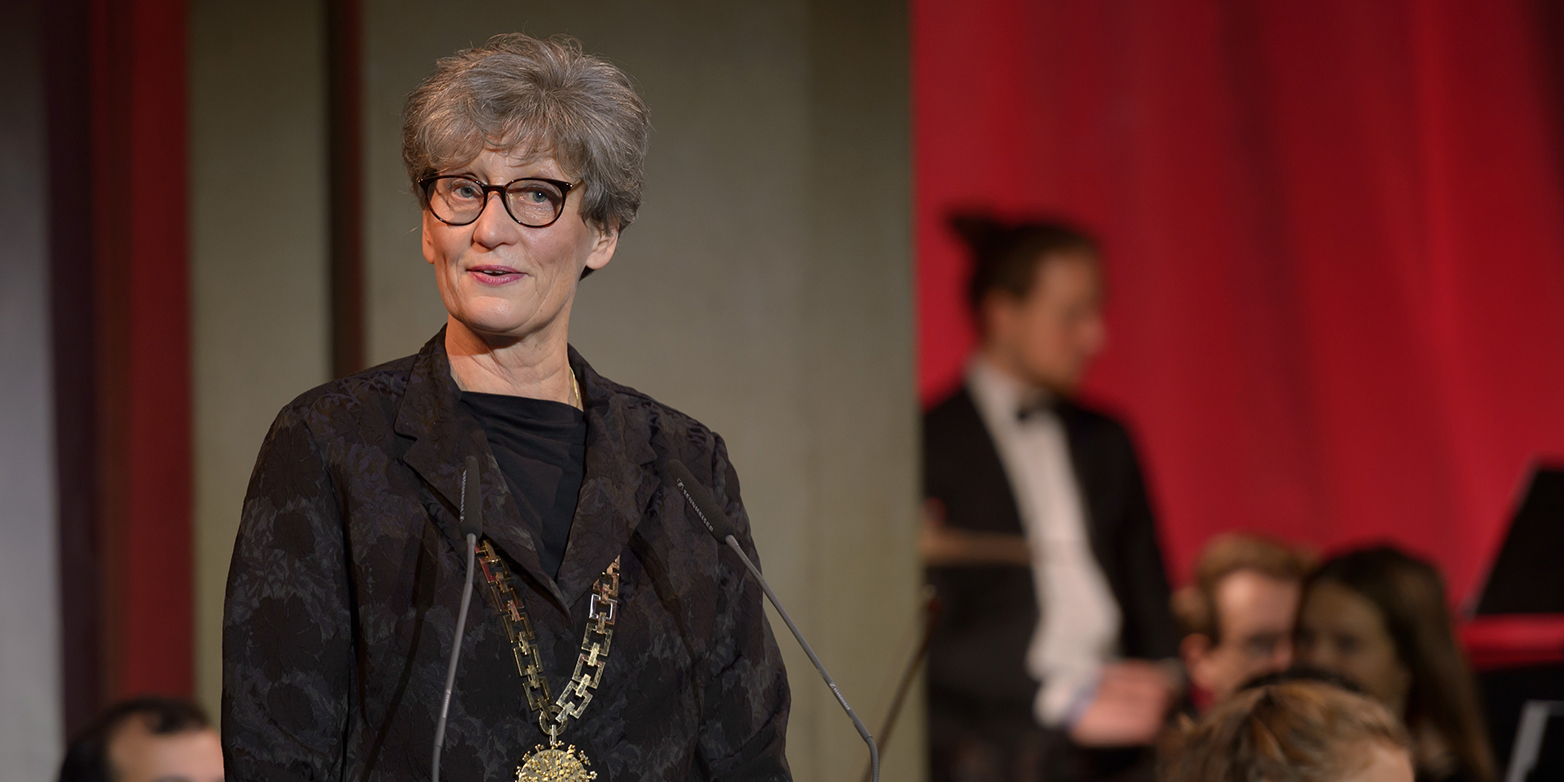
The emotional mood at the 166th anniversary of ETH was due not only to the fact that unlike last year it could be held as an in-person event, it was also the last ETH Day with Sarah Springman as host. She will step down at the end of January after 25 years as an ETH professor and seven years as Rector. She still has her sights set firmly on teaching at ETH: “We’re not quite back to ‘business as usual’, but the students are back on campus,” she said. This is only possible as a result of Covid certificate requirements, and Springman stressed that we must all take responsibility in global challenges such as the pandemic: “Homo sapiens appears to be the biggest troublemaker on the planet. But we’re also the only problem solver.” She believes that curriculum developments at ETH as are on track, for example with the launch of a large-scale project to integrate computational competencies into all degree programmes.
Never stop evolving
The Rector sees the newly opened Student Project House on the Zentrum campus as a great opportunity, particularly when it comes to interdisciplinary skills: “Students can implement their ideas here, and also have the chance to fail – learning to fail, and learning from failure, is one of the most important experiences for aspiring young people.” The new Ordinance on Doctoral Studies, which will come into force in 2022 and will help to regulate the supervision of doctoral students, has also been an important concern for the Rector: “ETH Zurich has grown enormously in my time here, particularly in complexity. The new doctoral ordinance is an example of how ETH Zurich continues to evolve.” With the world changing so rapidly, she said, even the best expertise becomes outdated. The range of continuing education courses has been expanded over the years with a view to ensuring lifelong learning, and the School for Continuing Education was established in 2018, and today offers more than 60 diploma courses. Springman's successor, Günther Dissertori, will inherit all of this and the ongoing challenges of controlling the growth of ETH, and upholding student mental health and diversity at ETH Zurich.
More science for society – and vice versa
ETH President Joël Mesot honoured the outgoing Rector in his speech, commenting that Springman had spared no effort to support students, not only in their learning but also in their personal development. He paid tribute to her role as a mentor in diversity: “The 45 percent share of women in new appointments in 2021 is a reflection of our progress – but we know there’s still a long way to go,” he said. The development of the university is similar to that of a Gothic cathedral: “No sooner has one part been renovated than work starts on another.”
When it comes to tackling urgent global problems, Mesot highlighted ETH innovations such as spin-offs that produce solar fuels or capture CO2, and a new communication network for the Swiss banking sector based on ETH research. Regarding the turbulent times of the pandemic, Mesot emphasised that science and society both rely on each other: “We need universities and our researchers – but in turn, science also needs the constant “reality checks” that result from dialogue with society,” he said. Mesot closed with an appeal to the political domain: “Our country is simply too small to be self-sufficient. We need access to the global talent pool and to scientific networks.”
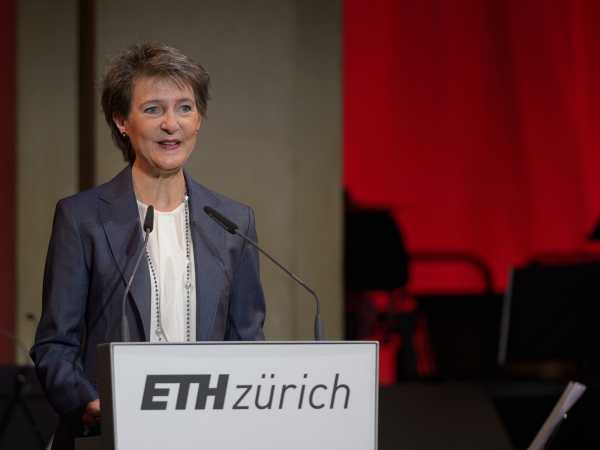
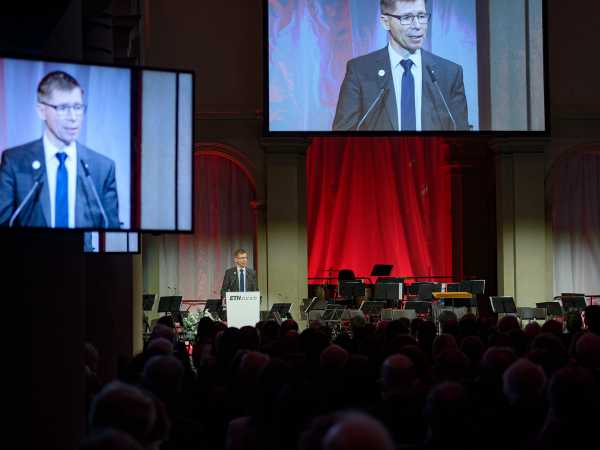
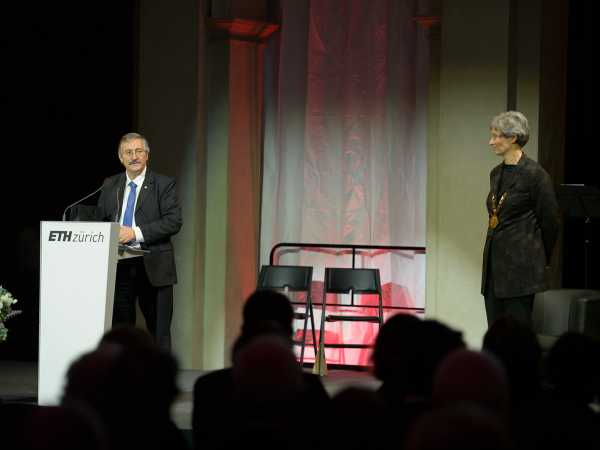
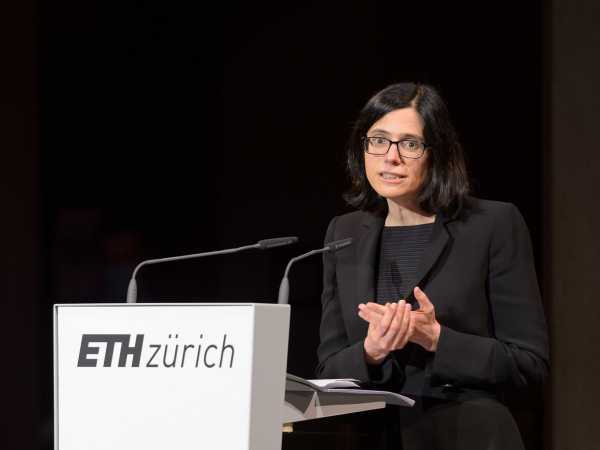
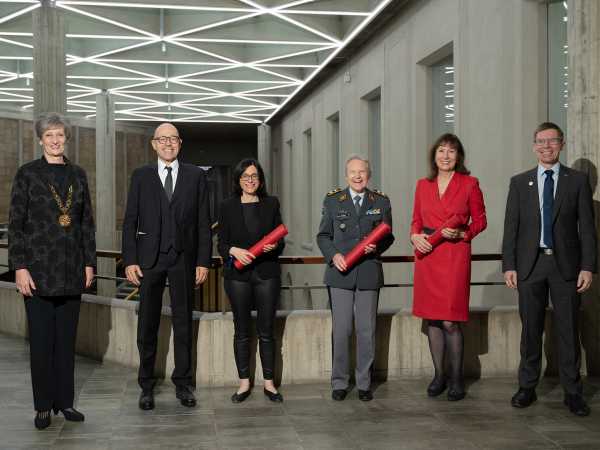
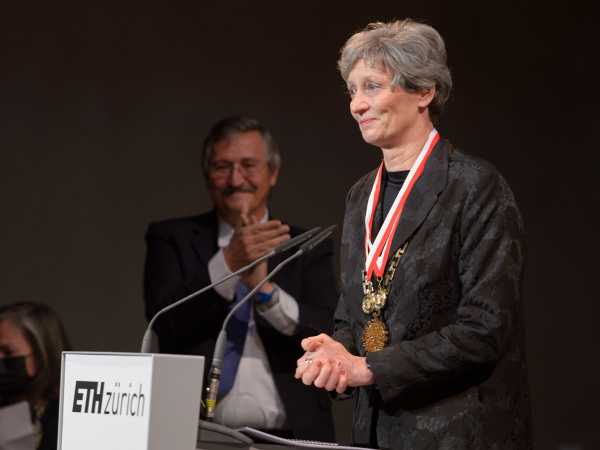
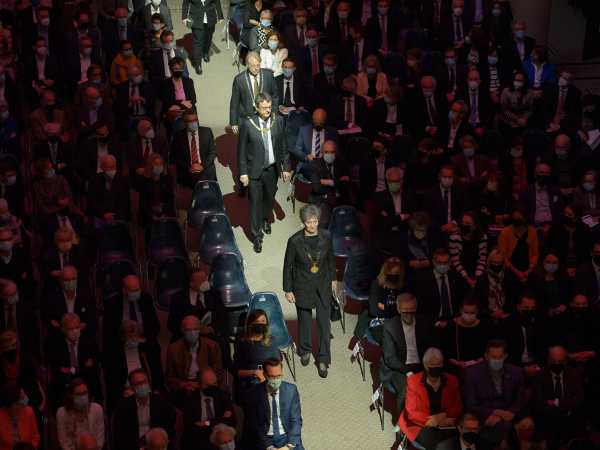
Speech by the Federal Councillor
Simonetta Sommaruga, Federal Councillor and Head of the Federal Department of the Environment, Transport, Energy and Communications, was invited to speak at ETH Day. In the wake of the 26th UN Climate Change Conference, she focussed her speech on the role played by research in tackling climate change. “We need experts to show our country and the world how we can achieve decarbonisation,” said Sommaruga. She went on to add “and in a way that benefits the population.”
A word on behalf of the students
Nils Jensen, representing students in his role as president of the student association VSETH, also thanked Springman, saying that she has been particularly committed to the issue of student mental health. But he warned against performance pressure in studies and the rapid growth of ETH. Following a presentation by three young researchers from the Department of Mathematics and a video from the Student Project House, Jensen presented the Golden Owls for excellence in teaching and the Credit Suisse Award for Best Teaching, which went to Meike Akveld, lecturer in the Department of Mathematics.
Honorary doctor and two honorary councillors
Aviv Regev, a world-leading pioneer in the field of bioinformatics and bioengineering, has been awarded an honorary doctorate from ETH Zurich. Originally a mathematician, her research examines the functioning of cellular systems. Two ETH alumnae were also made honorary councillors: chemical engineer and CEO Suzanne Thoma and the highest ranking woman in the Swiss army, Major General Germaine J.F. Seewer.
A thank-you to finish
Michael Hengartner, president of the ETH Board, paid tribute to both the scientific and sporting excellence of Springman. Above all, however, he thanked the Rector for her tireless dedication to ETH and its students, particularly in terms of the advancement of women. “Sarah Springman has always been an outstanding role model for young female students and researchers in all her functions,” he said.
Comments
Additional comments are available for the German version of this article. Show all comments
Ich habe fast Lust nochmals ein Studium zu beginnen, habe 1960 diplomiert, vor über 60 Jahren